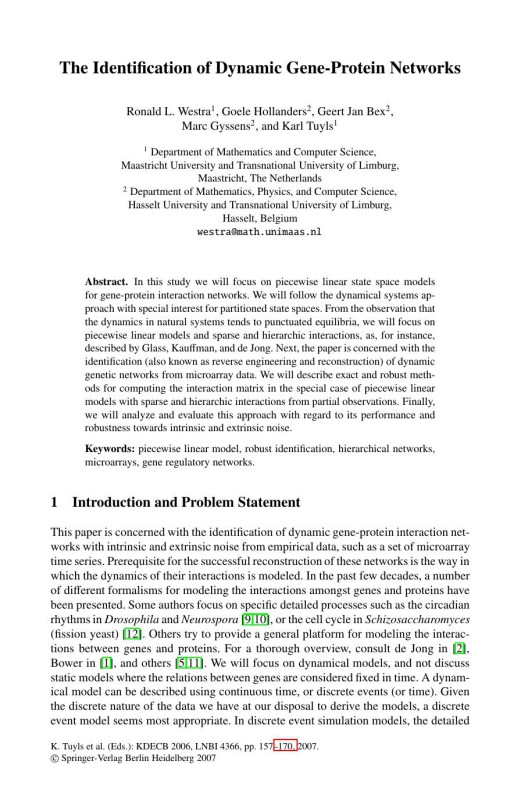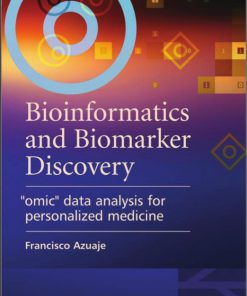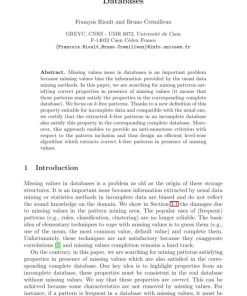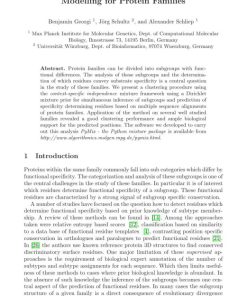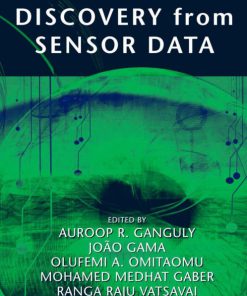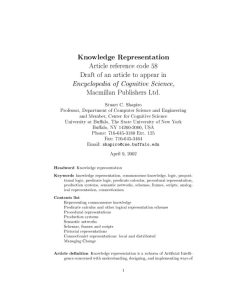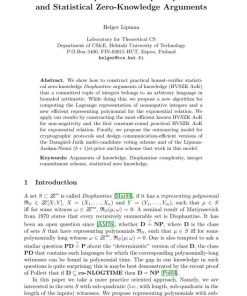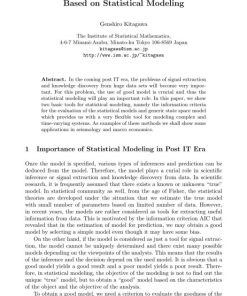Knowledge Discovery and Emergent Complexity in Bioinformatics 1st Edition by Karl Tuyls, Ronald Westra, Yvan Saeys, Ann Nowé
$50.00 Original price was: $50.00.$25.00Current price is: $25.00.
Authors:Anique , Author sort:Anique , Languages:Languages:eng
Knowledge Discovery and Emergent Complexity in Bioinformatics 1st Edition by Karl Tuyls, Ronald Westra, Yvan Saeys, Ann Nowé – Ebook PDF Instant Download/Delivery.
Full download Knowledge Discovery and Emergent Complexity in Bioinformatics 1st Edition after payment
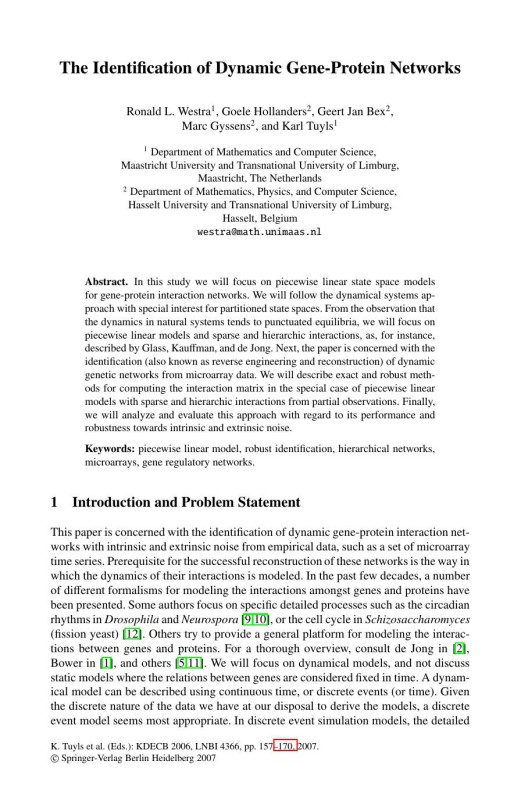
Product details:
ISBN 10:
ISBN 13:
Author: Karl Tuyls, Ronald Westra, Yvan Saeys, Ann Nowé
This book contains selected and revised papers of the International Symposium on Knowledge Discovery and Emergent Complexity in Bioinformatics (KDECB 2006), held at the University of Ghent, Belgium, May 10, 2006. In February 1943, the Austrian physicist Erwin Schrodi ¨ nger, one of the founding fathers of quantum mechanics, gave a series of lectures at Trinity College in Dublin titled “What Is Life? The Physical Aspect of the Living Cell and Mind. ” In these l- tures Schrodi ¨ nger stressed the fundamental differencesencountered between observing animate and inanimate matter, and advanced some, at the time, audacious hypotheses aboutthe nature andmolecularstructureof genes, some ten yearsbeforethe discoveries of Watson and Crick. Indeed, the rules of living matter, from the molecular level to the level of supraorganic ocking behavior, seem to violate the simple basic interactions found between fundamental particles as electrons and protons. It is as if the organic molecules in the cell ‘know’ that they are alive. Despite all external stochastic uct- tions and chaos, process and additive noise, this machinery has been ticking for at least 3. 8 billion years. Yet, we may safely assume that the laws that governphysicsalso steer these complex associations of synchronous and seemingly intentional dynamics in the cell.
Knowledge Discovery and Emergent Complexity in Bioinformatics 1st Edition Table of contents:
Chapter 1: Introduction to Bioinformatics
- Overview of bioinformatics as a field, its historical context, and its growing importance.
- The role of computational techniques in analyzing biological data, from genomics to systems biology.
Chapter 2: Data Mining and Knowledge Discovery
- Principles of data mining and knowledge discovery in bioinformatics.
- Key techniques such as clustering, classification, and association rule mining applied to biological datasets.
Chapter 3: The Role of Machine Learning in Bioinformatics
- Introduction to machine learning techniques used in bioinformatics.
- Supervised and unsupervised learning methods and their applications in gene expression analysis, protein structure prediction, etc.
Chapter 4: Handling High-Dimensional Biological Data
- Challenges posed by high-dimensional data, such as genomic data.
- Dimensionality reduction techniques like PCA (Principal Component Analysis) and their application in bioinformatics.
Chapter 5: Network-Based Approaches in Bioinformatics
- Introduction to biological networks (e.g., gene interaction networks, protein-protein interaction networks).
- How network-based methods can uncover emergent properties in complex biological systems.
Chapter 6: Bioinformatics and Complex Systems
- Exploration of complex systems theory in the context of bioinformatics.
- The study of emergent behavior in biological systems and how computational methods help model this complexity.
Chapter 7: Evolutionary Algorithms in Bioinformatics
- Overview of evolutionary algorithms (e.g., genetic algorithms) and their role in optimization problems in bioinformatics.
- Applications in sequence alignment, protein folding, and other areas.
Chapter 8: Integrating Multi-Omics Data
- Challenges and methods in integrating data from different “omics” layers (e.g., genomics, transcriptomics, proteomics).
- Techniques such as multi-view learning and their use in understanding complex biological phenomena.
Chapter 9: Case Studies in Knowledge Discovery in Bioinformatics
- Real-world case studies demonstrating the application of knowledge discovery techniques in solving bioinformatics problems.
- Examples from drug discovery, disease modeling, and personalized medicine.
Chapter 10: Ethical, Legal, and Social Issues in Bioinformatics
- Discussion of ethical and societal implications in the use of bioinformatics techniques.
- Privacy issues, data sharing, and the potential risks of biological data misuse.
Chapter 11: The Future of Bioinformatics and Knowledge Discovery
- Emerging trends and future directions in bioinformatics.
- The growing importance of artificial intelligence, deep learning, and big data in the next generation of bioinformatics research.
People also search for Knowledge Discovery and Emergent Complexity in Bioinformatics 1st Edition:
knowledge discovery and data mining
knowledge discovery and data mining 2025
knowledge discovery and data mining help organizations by

